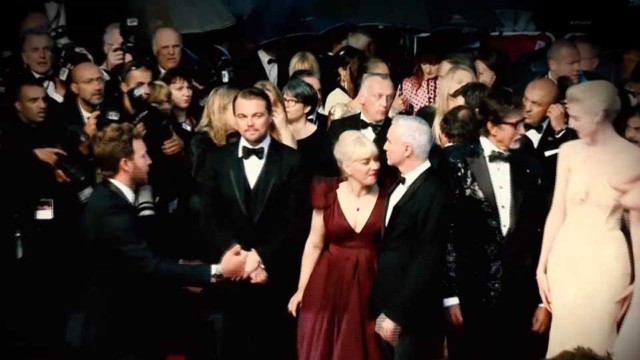Netflix is a staple in millions of homes across the United States – and it has big ambitions.
CGTN’s Phil Lavelle reports.
The streaming service – which started out as a DVD rental-by-mail service – has announced a huge budget for 2018: Up to $8 billion to be spent on original productions. That’s an increase of up to $2 billion in a year.
In fact, Netflix is proving to be a major threat: with 80 original films announced for 2018, that means it’s planning on releasing more original movies than the major studios combined. That includes Disney, Sony and Time Warner (and all of their sub-brands like Pixar, Marvel and New Line.)
It’s a huge turnaround for a company that was, at one point, seen as a poor relation to the movie industry – shunned by the major awards bodies and not invited to the major festivals. Now, the stars can’t get enough of it: the likes of Angelina Jolie, Brad Pitt and Will Smith signing up for projects with them.
Max Michael is from United Talent Agency – one of Hollywood’s big players, representing some of the movie industry’s biggest stars. He’s definitely noticed a change in attitude from stars when Netflix comes knocking now.
“These days, Netflix is seen as a premium buyer,” he tells CGTN. “As high end as any other. It’s taken them a ways to get there… actors get it, writers get it, directors get it and they want their shows on those services and they know those are the go-to places to see things.”
The question is: why would a star choose Netflix over some of the biggest studios. Variety’s Chief Movie Critic, Peter Debruge said it’s down to one element: cash.
“I think Netflix is throwing money at people”, he said. “They pay a bigger amount up front. A huge amount. Someone like Will Smith who gets a $25 million pay check typically may get $85 million from Netflix.”
It’s a different pricing structure compared to the established players. Whereas the big, established studios pay a sum up-front, the stars get backend payments linked from anything from ticket sales to merchandise. With Netflix (which is notoriously secretive about its business model), it’s believed the stars get a much bigger lump sum to offset that backend payment.
Another big draw for Netflix, Peter points out, is the freedom it gives those huge names who want to put their own stamp and seal on a production:
“The whole Netflix pitch to talent is that you can come here and have a director’s cut and you can do what you want so someone like Angelina Jolie, who feels very strongly about Cambodia, and wants to make the movie ‘First They Killed My Father’.. well, Netflix is the place she can do it the way she wants. At a studio, she may have the pressure of producers or people test screening it and worrying how it’s going to turn out.”
Netflix has a fixed pricing structure. In most countries, subscribers paid around $10 per month for an unlimited streaming service. A slightly more expensive package (typically $2-$3 more) allows them to stream in 4K and on multiple devices. But it’s not like some other services, like video games for example, which have add-on purchases. Therefore, by definition, Netflix’s income is capped once its subscriber base is exhausted. In the U.S., at least, it feels like that has reached market saturation.
So, if that’s the case, how can Netflix find another $2 billion to add onto its production budget? Kaycea Campbell, Economics Professor at Pierce College in Southern California has a couple of theories:
“Netflix is known for their original content. So they have a lot of money coming in terms of licensing and royalties, which is someone else wanting to show their content. Also, by not having to pay for this content, because it’s their own, they’re lowering costs. They’re also penetrating the international market. Slowly, but doing it because they’ve saturated the domestic market here.”
Netflix has recently moved into a glistening new Hollywood office on the site of the iconic Sunset Bronson Studios. In a city where real estate prices have rocketed, it’s not a problem. This is a company with both big pockets and big ambitions and one that is changing the face of the film industry.
 CGTN America
CGTN America

